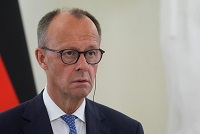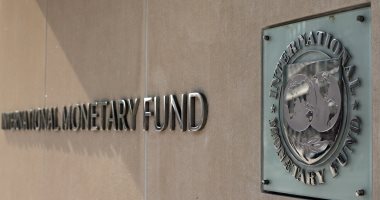The International Monetary Fund (IMF) completed the second review of the financing programs granted to Madagascar to support its development in July 2024. Following this mission, the Executive Board praised the progress made in public finances, especially through the public electricity company, as well as in climate resilience. However, despite this positive assessment, which enabled the disbursement of an additional 107 million USD, there were reservations regarding the economic outlook weakened by recent external shocks.
This generally positive evaluation of the Malagasy government comes as President Andry Rajoelina hosts the 45th summit of the Southern African Development Community (SADC) this week.
The specialized African financial and economic agency “Ecofin” reported that the IMF approved two loans totaling 658 million USD over three years under the Extended Credit Facility and the Resilience and Sustainability Facility in June 2024. The first, amounting to 337 million USD, aims to strengthen governance, consolidate monetary and financial stability, promote manufacturing, and develop human capital. The second aims to reduce vulnerabilities to climate change by improving climate adaptation and creating a favorable environment for green private sector investments.
More than a year after these agreements, the latest IMF review paved the way for the disbursement of two new installments: about 50 million USD under the Extended Credit Facility and 56 million USD under the Regional Stability Mechanism. Regarding climate, the IMF noted the implementation of several measures, including activating the National Emergency Fund for disaster risk management and adopting a new forest carbon framework encouraging private sector participation in reforestation.
The fund also welcomed the 2025-2028 recovery plan for Jirama, the public electricity and water supply company. This plan aims to reduce the operating deficit of 90 billion Ariary per month in 2024, modernize infrastructure, reduce fuel dependency (which accounts for 53% of expenses in 2023), and cut annual public subsidies by about one trillion Ariary (225.7 million USD).
The IMF highlighted the continued application of the automatic fuel price adjustment mechanism at stations, which came into effect in January 2025. This led to a cumulative increase of 6% for diesel and 33% for kerosene, with a 7% decrease for gasoline. Only kerosene remains subsidized, priced 20% below the reference price.
Nigel Clarke, Deputy Managing Director of the IMF, said: “The recent adoption of Jirama’s recovery plan is a step in the right direction. Its swift implementation will help address widespread electricity supply disruptions for households and businesses while reducing the burden on the government budget. Continuing the automatic fuel pricing mechanism will help contain financial risks.”
However, the fund called for resolving disputes with distributors and adjusting the mechanism to avoid exceeding international reference market prices. It also recommends supporting these reforms with targeted measures, such as deploying solar energy systems in rural areas to mitigate their impact on the most vulnerable households.
Despite the efforts of Andry Rajoelina’s government, Madagascar is expected to experience weaker economic growth than previously forecast in 2025. According to the IMF, Madagascar’s GDP is expected to grow by 4% in 2025, compared to a previous estimate of 4.6%, due to a series of external shocks largely related to Donald Trump’s assumption of power in January.













Recommended for you
Talib Al-Rifai Chronicles Kuwaiti Art Heritage in "Doukhi.. Tasaseem Al-Saba"
Exhibition City Completes About 80% of Preparations for the Damascus International Fair Launch
Unified Admission Applications Start Tuesday with 640 Students to be Accepted in Medicine
Egypt Post: We Have Over 10 Million Customers in Savings Accounts and Offer Daily, Monthly, and Annual Returns
His Highness Sheikh Isa bin Salman bin Hamad Al Khalifa Receives the United States Ambassador to the Kingdom of Bahrain
Al-Jaghbeer: The Industrial Sector Leads Economic Growth